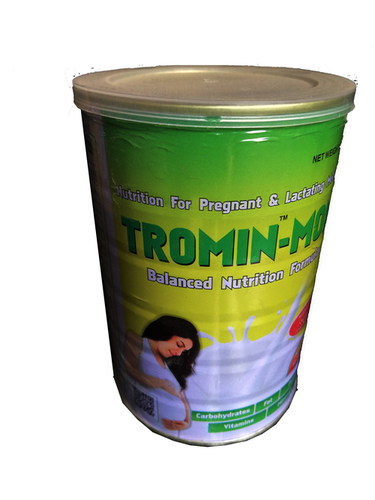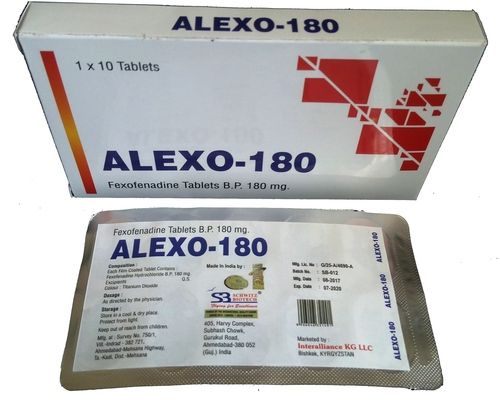
Nutritional Supplement For Pregnant Women Lactating Mother
Product Details:
Nutritional Supplement For Pregnant Women Lactating Mother Price And Quantity
- 100 Box
- 200 INR/Box
Nutritional Supplement For Pregnant Women Lactating Mother Trade Information
- Mundra and Mumbai
- Cash in Advance (CID) Cash Advance (CA)
- 100 Box Per Day
- 3-30 Days
- Yes
- Sample costs shipping and taxes has to be paid by the buyer
- Box and Carton
- Australia Central America North America South America Eastern Europe Western Europe Middle East Africa Asia
- All India
Product Description
Key points regarding nutrition for pregnant and lactating women
- Pregnancy is physiologically and nutritionally a highly demanding period. Extra food is required to meet the requirements of the foetus.
- A woman prepares herself to meet the nutritional demands by increasing her own body fat deposits during pregnancy.
- A lactating mother requires extra food to secrete adequate quantity/ quality of milk and to safeguard her own health.
Important nutrition tips for pregnant and lactating women
- Eat more food during pregnancy.
- Eat more whole grains, sprouted grams and fermented foods.
- Take milk/meat/eggs in adequate amounts.
- Eat plenty of vegetables and fruits.
- Avoid superstitions and food taboos.
- Do not use alcohol and tobacco. Take medicines only when prescribed.
- Take iron, folate and calcium supplements regularly, after 14-16 weeks of pregnancy and continue the same during lactation.
Nutrients that require special attention during pregnancy and lactation period
The daily diet of a woman should contain an additional 350 calories, 0.5 g of protein during first trimester and 6.9 g during second trimester and 22.7 g during third trimester of pregnancy. Some micronutrients are specially required in extra amounts during these physiological periods. Folic acid, taken throughout the pregnancy, reduces the risk of congenital malformations and increases the birth weight. The mother as well as the growing foetus needs iron to meet the high demands of erythropoiesis (RBC formation). Calcium is essential, both during pregnancy and lactation, for proper formation of bones and teeth of the offspring, for secretion of breast-milk rich in calcium and to prevent osteoporosis in the mother. Similarly, iodine intake ensures proper mental health of the growing foetus and infant. Vitamin A is required during lactation to improve child survival. Besides these, nutrients like vitamins B 12 and C need to be taken by the lactating mother.
Ways to meet the nutritional demands during pregnancy and lactation
- The pregnant/lactating woman should eat a wide variety of foods to make sure that her own nutritional needs as well as those of her growing foetus are met.
- There is no particular need to modify the usual dietary pattern. However, the quantity and frequency of usage of the different foods should be increased.
- She can derive maximum amount of energy (about 60%) from rice, wheat and millets. Cooking oil is a concentrated source of both energy and polyunsaturated fatty acids.
- Good quality protein is derived from milk, fish, meat, poultry and eggs. However, a proper combination of cereals, pulses and nuts also provides adequate proteins.
- Mineral and vitamin requirements are met by consuming a variety of seasonal vegetables particularly green leafy vegetables, milk and fresh fruits.
- Bioavailability of iron can be improved by using fermented and sprouted grams and foods rich in vitamin C such as citrus fruits.
- Milk is the best source of biologically available calcium.
- Though it is possible to meet the requirements for most of the nutrients through a balanced diet, pregnant/lactating women are advised to take daily supplements of iron, folic acid, vitamin B and calcium.
Additional care required during pregnancy and lactation
Adequate intake of a nutritious diet is reflected in optimal weight gain during pregnancy (10 kg) by the expectant woman. She should choose foods rich in fibre (around 25 g/1000 kcal) like whole grain cereals, pulses and vegetables, to avoid constipation. She should take plenty of fluids including 8-12 glasses of water per day. Salt intake should not be restricted even to prevent pregnancy-induced hypertension and pre-eclampsia. Excess intake of beverages containing caffeine like coffee and tea adversely affect foetal growth and hence, should be avoided.
In addition to satisfying these dietary requisites, a pregnant woman should undergo periodic health check-up for weight gain, blood pressure, anaemia and receive tetanus toxoid immunization. She requires enough physical exercise with adequate rest for 2-3 hrs during the day. Pregnant and lactating women should not indiscriminately take any drugs without medical advice, as some of them could be harmful to the fetus/baby. Smoking and tobacco chewing and consumption of alcohol should be avoided. Wrong food beliefs and taboos should be discouraged. The most important food safety problem is microbial food borne illness and its prevention during pregnancy is one of the important public health measures. Avoiding contaminated foods is important protective measure against food borne illness.
Importance of eating Folate-Rich Foods
- Folic acid is essential for the synthesis of haemoglobin.
- Folic acid deficiency leads to macrocytic anaemia.
- Pregnant women need more of folic acid.
- Folic acid supplements increase birth weight and reduce congenital anomalies.
- Green leafy vegetables, legumes, nuts and liver are good sources of folic acid.
- 500 mg (0.5mg) folic acid supplementation is advised pre-conceptionally and throughout pregnancy for women with history of congenital anomalies (neural tube defects, cleft palate).
Importance of eating Iron-Rich Foods
- Iron is needed for haemoglobin synthesis, mental function and to provide immunity against diseases.
- Deficiency of iron leads to anaemia.
- Iron deficiency is common particularly in women of reproductive age and children.
- Iron deficiency during pregnancy increases maternal mortality and low birth weight infants.
- In children, it increases susceptibility to infection and impairs learning ability.
- Plant foods like green leafy vegetables, legumes and dry fruits contain iron.
- Iron is also obtained through meat, fish and poultry products.
- Iron bio-availability is poor from plant foods but is good from animal foods.
- Vitamin C - rich fruits like gooseberries (Amla), guava and citrus improve iron absorption from plant foods.
- Beverages like tea bind dietary iron and make it unavailable. Hence, they should be avoided before during or soon after a meal.
- Commonly consumed plant based diets provide around 18mg of iron as against recommended intake of 35mg per day. Therefore, supplementation of iron (100 mg elemental iron, 0.5 mg folic acid) is recommended for 100 days during pregnancy from 16th week onwards to meet the demands of pregnancy.
Other Products in 'Pharmaceutical Medicines' category
 |
SCHWITZ BIOTECH
All Rights Reserved.(Terms of Use) Developed and Managed by Infocom Network Private Limited. |

 English
English Spanish
Spanish French
French German
German Italian
Italian Chinese (Simplified)
Chinese (Simplified) Japanese
Japanese Korean
Korean Arabic
Arabic Portuguese
Portuguese





